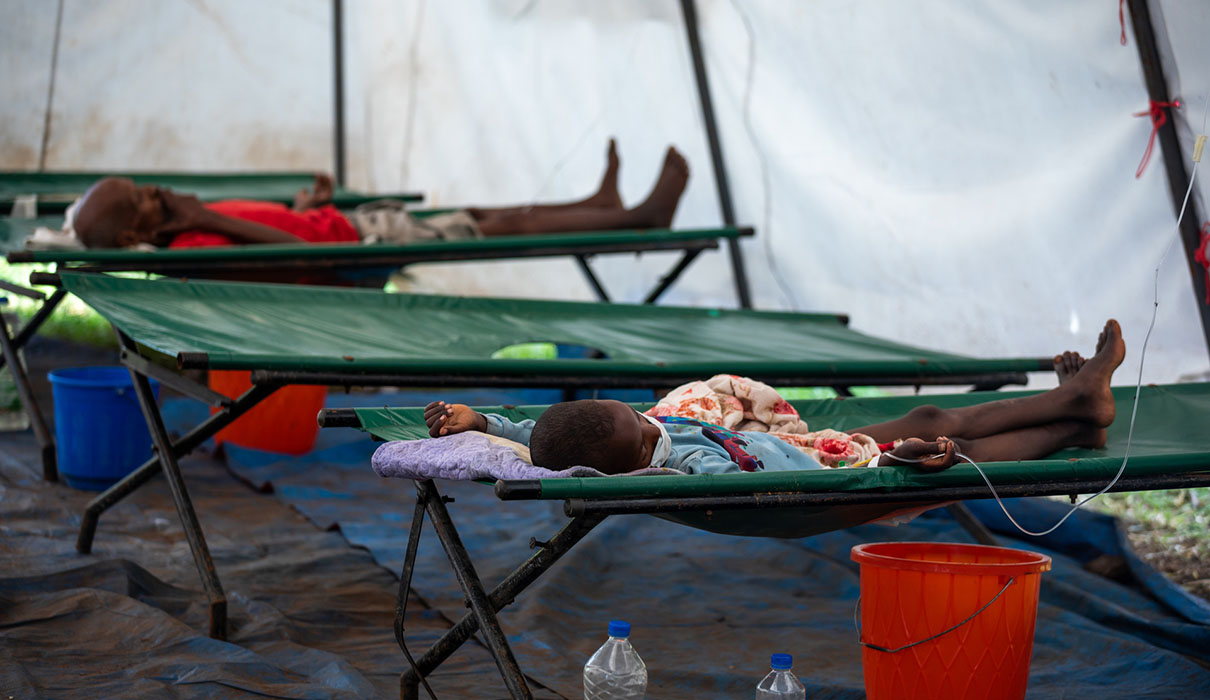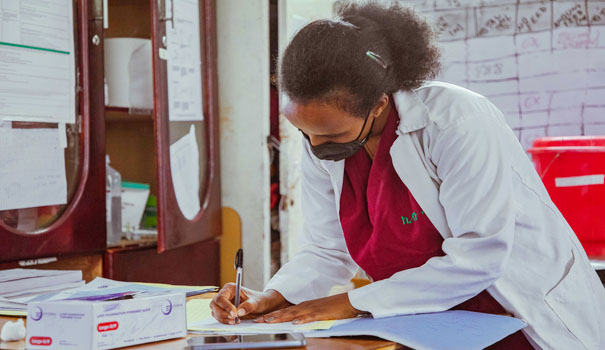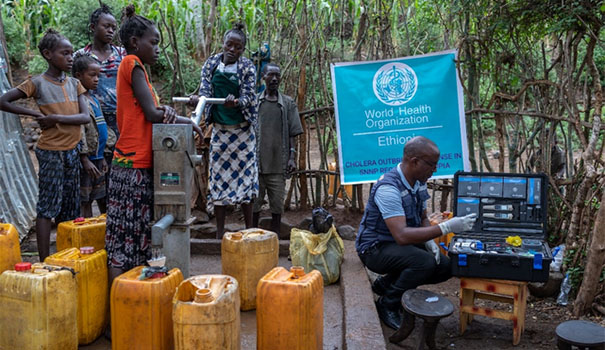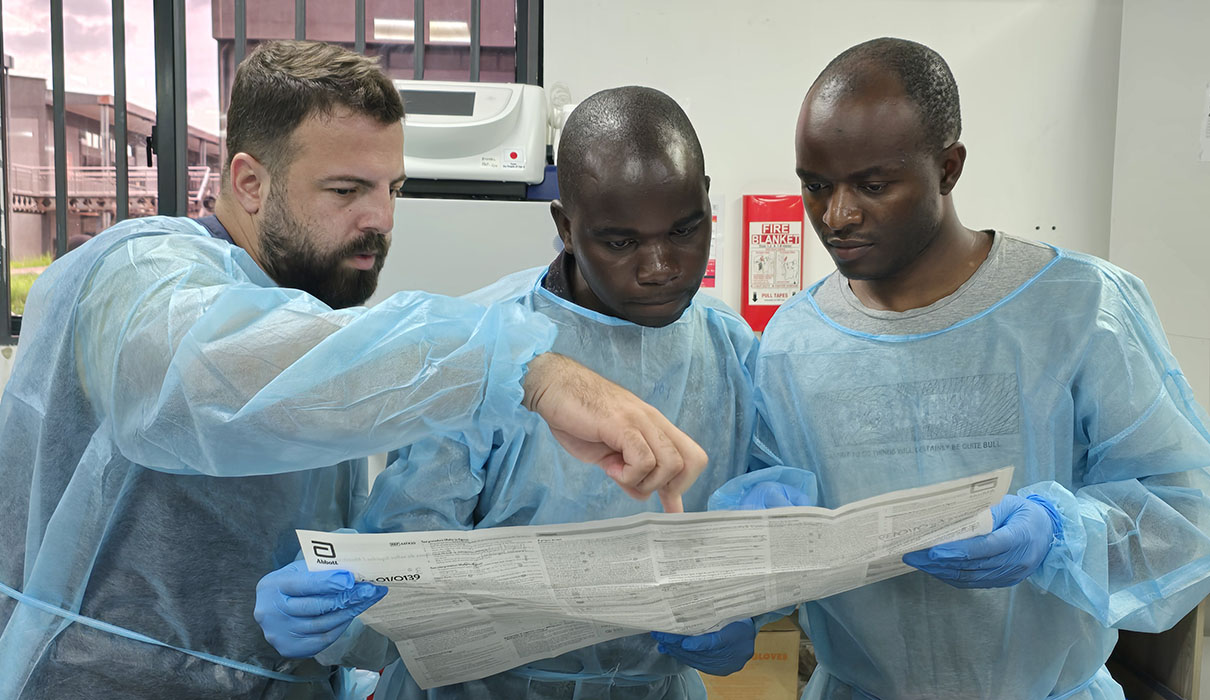The GTFCC has 5 technical working groups, and a research work stream whose mission is to develop up-to-date guidance and tools for their respective cholera response pillars.
The working groups ensure the dissemination of their products through direct engagement with countries and partners, training sessions and events. These groups are chaired by representatives of partner organizations and co-led by WHO cholera programme experts.
Chair: Dr. Iza Ciglenecki, Médecins Sans Frontières
GTFCC Focal Point: Kate Alberti, World Health Organization
The Case Management Working Group focuses on two core areas of work, improving access to treatment for patients with cholera and the clinical management of cholera patients.

Chair: Dr. Flavio Finger, Epicentre
GTFCC Focal Point: Dr. Morgane Dominguez, World Health Organization
The Epidemiology Working Group focuses on cholera surveillance to improve capacities at local, national, regional and global levels. It aims to foster the maximal use of surveillance data to better inform outbreak response as well as long-term prevention and control strategies.

Chair: Dr. Marie-Laure Quillici, Institut Pasteur
GTFCC Focal Point: Dr. Nadia Wauquier, World Health Organization
The Laboratory Working Group strives to improve cholera surveillance by supporting laboratory capacity building and enhancing coordination. Robust laboratory systems are essential for enhancing early detection, timely notification, and continuous monitoring of cholera outbreaks, thereby enabling prompt and targeted public health interventions.
Chair: Dr. Lucy Breakwell, US CDC
GTFCC Focal Point: Vincent Mendiboure, World Health Organization
The OCV Working Group is tasked with guiding the global use of oral cholera vaccines, developing programmatic guidance, and supporting countries in planning and executing OCV campaigns.
Chair: Pierre-Yves Oger, UNICEF
GTFCC Focal Point: Jérôme Souquet, World Health Organization
The WASH Working Group focuses on integrating water, sanitation, and hygiene efforts into cholera control strategies. The WWG priority is to reach universal access to basic WASH services in cholera hotspots/PAMIs by 2030.

GTFCC Focal Point: Dr. Tonia Thomas, British Red Cross/IFRC
Research plays a crucial role in cholera control within the framework of the Global Task Force on Cholera Control (GTFCC), providing evidence-based insights to guide decision-making, improve interventions, and optimize resource use. The research workstream crosses all technical working groups and therefore does not have a separate working group, but engages across the GTFCC community.
